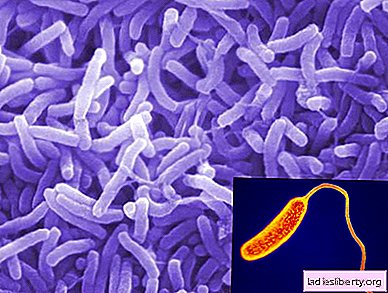
Gastritis is the most common disease in gastroenterology, to which, according to various sources, about 60-80% of the adult population. Gastritis is an inflammation of the gastric mucosa, accompanied by a restructuring of the glands of the gastric epithelium and impaired gastric epithelial cell function.
Depending on the area of inflammation in a particular section of the stomach, the disease is distinguished:
* pantagastritis or diffuser;
* fundal or gastritis of the body of the stomach;
* antral gastritis.
Chronic gastritis, depending on the causes of the disease, can also have the following forms:
* autoimmune gastritis, type A;
* Helicobacter pylori gastritis, type B;
* reflux or chemical gastritis, type C.
Special forms include lymphocytic, radiation, eosinophilic, granulomatous gastritis, as well as atrophic gastritis and carditis, which occurs during inflammation in the cardiac section of the stomach. The atrophic form of gastritis is associated with thinning of the mucous membrane, with secretory insufficiency and with a decrease in the number of glands. The main reason for its occurrence is the seeding of Helicobacter pylori by bacteria, which most often leads to the development of stomach cancer.
Gastritis - causes
- Irrational nutrition, expressed in too strict a diet or the use of fatty, spicy, salty and smoked foods.
- Frequent use of drugs.
- Smoking and alcohol abuse.
- Various stressful situations.
- Severe illness or diseases of the nervous system.
- The reverse flow of bile into the stomach and duodenum, from the gall bladder.
- An acute decrease in blood flow resulting from stress.
- Multiple fractures, injuries.
- Infectious diseases, including HIV, syphilis, tuberculosis, parasitic infection, cytomegalovirus.
- Radiation.
- Autoimmune diseases and disorders.
- Crohn's disease.
- Diseases of the gastrointestinal tract.
Gastritis - Symptoms
The disease is mainly manifested by characteristic symptoms of peptic ulcer - pain on an empty stomach and pulling or aching pain in the epigastric region at night. In addition, vomiting, nausea, heartburn and belching are possible. A tendency to constipation is characteristic and symptoms of gastric dyspepsia are possible - severity dull pain after eating in the epigastrium, nausea, belching of the air, bloating, unpleasant taste in the mouth, loose stools.
Gastritis - diagnosis
The diagnosis is based on the results of instrumental and laboratory examinations:
- general analysis of blood and urine;
- analysis of feces;
- study of feces for occult blood;
- blood chemistry;
- detection of Helicobacter pylori infection;
- gastroscopy, which is the main method of confirming the diagnosis, which allows you to clarify the existing options for gastritis and the presence / absence of Helicobacter pylori infection;
- Ultrasound of the pancreas, liver, gall bladder, necessary for the diagnosis of frequently occurring concomitant disease pathology.
Gastritis - treatment
First of all, treatment involves the elimination of Helicobacter pylori infection, a dynamic observation to detect the progression of autrophic changes that occur on the gastric mucosa and a decrease in the active signs of gastritis. As well as preventing the possible development of precancerous changes in the gastric mucosa of intestinal dysplasia and metaplasia.
Treatment also includes actions related to dietary nutrition and getting rid of bad habits, as well as physiotherapy, pharmacological therapy and sanatorium-treatment courses for fixing remission.
With increased acidity, patients with gastritis, diet No. 1 is recommended, with hypoacid manifestation - diet No. 2. It is recommended to take food a little, often and in the diet to avoid foods that irritate the mucous membrane.
Medications:
* to reduce the secretion of hydrochloric acid - proton pump inhibitors and H2-histamine receptor blockers;
* antacids that reduce the activity of pepsin and bind hydrochloric acid;
* gastroprotectors with astringent and enveloping properties;
* to regulate digestion, relieve cramps and normalize peristalsis;
* antibacterial drugs for eradication.
Comments











